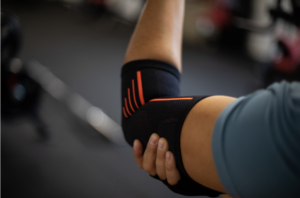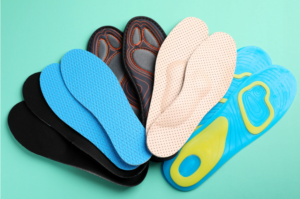What is Crepitus? What Happens When Your Joints Pop
Welcome to the NJ Pain & Spine Blog, a platform that enlightens readers on their health and pain management concerns. In this article, we will address the common phenomenon known as joint popping, which is a medical term for crepitus.
Crepitus occurs when your joints have a cracking or popping sensation consequent to their motion or flexing. Other than joints cracking or popping, the noise can mimic clicking, creaking, crunching, or grating. Crepitus is most common in your knees, elbows, neck, or shoulders.
The joints in your body play a substantial role in keeping your skeleton flexible. This allows motion throughout the body, vital for a healthy and active lifestyle.
Possible Causes of Joint Popping
Below are explanations of what may cause crepitus:
- Joint popping mainly happens when air seeps into the soft tissues around the joint. When you bend the joint, the air bubbles burst, making a popping sound.
- When tendons or ligaments slide over specific structures, it may make noise.
- Since joints wear and tear, this is also a possible cause for what makes your joints pop.
Crepitus is considered harmless. However, if pain/discomfort/swelling is associated with joint popping, it may cause concern. Crepitus can also be a symptom of the following conditions:
- Arthritis – A disease where there is swelling and tenderness in the joints.
- Bursitis – Swelling of the bursae (fluid-filled pads that cushion the joints).
- Cartilage damage – Cartilage is a flexible connective tissue that protects the joints. Following an injury, torn cartilage can encourage painful crepitus.
- Lupus – An autoimmune disease where the immune system attacks healthy tissue.
- Osteoarthritis – A type of arthritis where the flexible, protective tissue at the ends of the bones, called cartilage, wears down your joints.
- Tendinitis – Inflammation of the tendons.
- Sjören’s Syndrome – Autoimmune disease where the immune system harms the moisture consistency of the body.
 Diagnosis
Diagnosis
There are many options to choose from to diagnose crepitus correctly:
- Antibody tests: An antibody test can determine if specific proteins in your body confirm that you have an autoimmune disorder.
- Arthrocentesis (joint aspiration): This procedure removes excess fluid surrounding a joint with a needle to lessen swelling and identify a joint disorder.
- Bone scan: A bone scan will identify the conditions of the bones in your body with radiology.
- Blood tests: Blood tests will verify if you have arthritis or an infection.
- CT scan: A CT scan examines the tissue and fluid in your body to determine whether or not they may be linked to disease.
- MRI scan: An MRI can pinpoint whether there is inflammation and infection in your bone marrow or soft tissue.
- X-ray: An X-ray displays a physical image that helps doctors view the inside of the joint.
Who is Prone to Crepitus?
Crepitus can occur at any age but is more noticeable in older people. Those who suffer from other joint conditions, such as arthritis and tendinitis, may also have crepitus, but it is not guaranteed.
Remedies for crepitus include:
- Putting ice on your joints to lessen the severity of inflammation and swelling.
- Bracing/splinting assists in adequately aligning your joint due to arthritis or injury.
- Custom orthotics help when you suffer from foot and knee pain by stabilizing your foot and knee.
 For more effective pain relief, doctors may advise patients to try medication like non-steroidal anti-inflammatory drugs or steroid injections. For more severe cases, doctors also suggest surgery.
For more effective pain relief, doctors may advise patients to try medication like non-steroidal anti-inflammatory drugs or steroid injections. For more severe cases, doctors also suggest surgery.
These three surgical methods aid in pain from arthritis and crepitus:
- Arthroscopic surgery: A minimally invasive surgery that uses small instruments inserted through tiny incisions to reach the joint. It is ideal for PFS (Patellofemoral pain syndrome) and other knee disorders.
- Debridement: A minimally invasive surgery focusing on smoothing damaged cartilage to reduce rubbing.
- Joint replacement: Surgery implant of an artificial joint in place of a damaged joint. This surgical procedure is for more severe knee and joint pain.
Physical therapy
Whether or not you try for a surgical option, physical therapy works to strengthen your joints, lessen joint discomfort and pressure, and encourage mobility.
When You Should Seek Medical Assistance.
If you are concerned about crepitus or your joints popping, meet with a doctor to evaluate the cause. Discomfort or swelling following crepitus is an alarming symptom that should not be dismissed. Let’s meet soon before symptoms worsen. If not assessed, you could be ignoring an underlying medical condition. NJ Pain & Spine is persistent in addressing clients’ concerns regarding pain management, whether it be back, neck, or joint pain. Schedule your appointment with NJ Pain & Spine today.




